Morumokwano and linguistic turf wars in South African hip-hop
By RS Tshesane
Unlike in the United States, where hip-hop sub-genres are differentiated by their cities of origin and lyrical themes, here in South Africa they are distinguished by the languages they represent. Each of the eleven official languages has its own specific hip-hop movement. For instance, hip-hop in isiXhosa is called ‘Spaza’, in Tshivenda it’s ‘Venrap’ and Sesotho rap is called ‘Tshepe’, while isiZulu hip-hop is better known as ‘Kasi Rap’. However, we all know that hip-hop is a universal music and it is one.
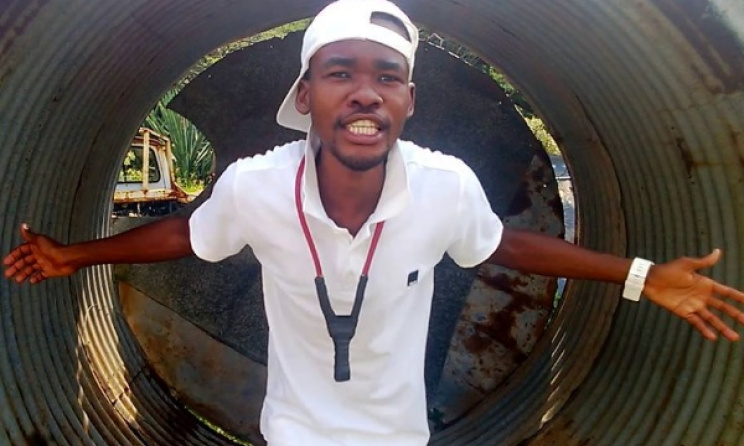 Morumokwano rapper RATASepedi. Photo: Facebook
Morumokwano rapper RATASepedi. Photo: Facebook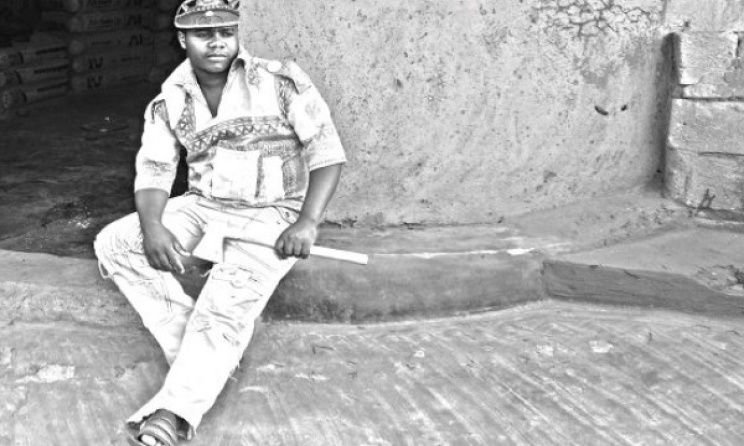 Morumokwano rapper Mohlolo. Photo: Africanhiphop.com
Morumokwano rapper Mohlolo. Photo: Africanhiphop.com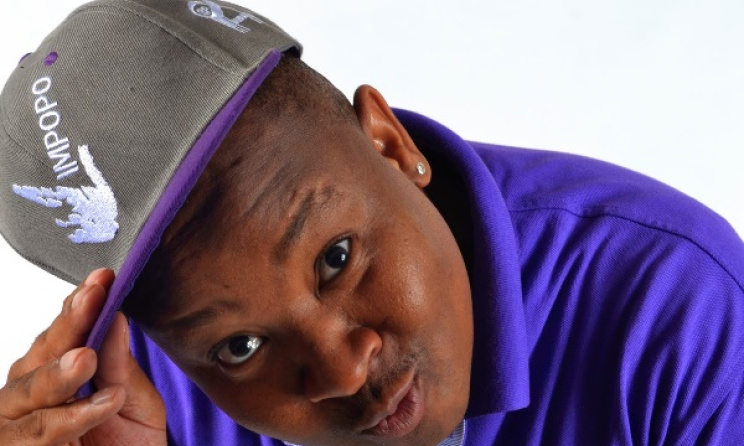 Morumokwano rapper Spacemunna. Photo: spacemunna.blogspot.com
Morumokwano rapper Spacemunna. Photo: spacemunna.blogspot.com
When the now famous Motswako sub-genre started in the late 1990s by acts such as Baphixile, it included a mixture of languages, namely Setswana, Sepedi and English and to some extent isiZulu. But Setswana rappers have since dominated the sub-genre and claimed it as theirs. A prominent Motswako rapper, Khuli Chana, even asserted on his song ‘Wannabeez’ that some rappers want to be part of Motswako, presumably because of its fame, and alleged that they are not welcome.
Although other roleplayers such as DJ Lemonka, who featured Sepedi rappers Space Munna and P.O. Box in his Motswako Tape 2 mixtape, understand the original meaning of Motswako, the damage is already done, and any rapper who doesn’t rap in Setswana and attempts to categorise his/her music under the umbrella of Motswako will forever be classified as a Motswako wannabe.
Video: DJ Lemonka ft. Spacemunna PO Box – I’m A King
Morumokwano (also known as Morumo Rap) is a style of hip-hop music that evolved from Motswako in the early 2000, in South Africa. Sepedi rappers became discontent with Setswana domination of Motswako and stopped calling their music by that name. Initially known as Sepedi/Pedi Rap due to the exclusive usage of Sepedi language, RATASepedi coined the name ‘Morumokwano’ in 2013. It is typified by Sepedi rap lyrics which usually consist of proverbs, idioms, figures of speech, rhyme, pun and other creative forms of Sepedi language, layered on a steady beat.
Etymology: The term Morumokwano was borrowed from poetic term by the same name which means rhyme in Sepedi language. The use of the term signifies the commitment to Sepedi language promotion.
Origin of Morumokwano
The origin of Morumokwano is attributed to Mr Blax Myth, member of a hip-hop group Baphixile, who are recognised as the pioneers of Motswako. They were the first act to commercially release a full length Motswako album, Ngoma in 1998. Mr Blax Myth became the first rapper to rap in Sepedi language when together with Prof, another member of Baphixile who rapped in Setswana, they released their debut single ‘Ngoma’ in 1998.
In 2004 a duo Kepsool & Mash, under the name Thy Kingdom Come, released a classic track, ‘Lengwalo’. It was the first full Sepedi rap song with a story telling theme that depicted a young boy (Molatelo) writing a later to his father (Moloto), explaining how difficult life is at home without him and his support and his father writing back clarifying certain issues underlying his absence.
Then Lahzee released ‘The Rebel MC’ through Hype Magazine’s mixtape Hype Sessions in 2005. The same year Mokhure released ‘Hlaba Lešata’, and then Jam Square featured DJ Skrfl in the 2006 hit ‘Mababy waka’. 2007 saw Renovator Lepara dropping 'Fast Move'. The following year Lekkersweet came to the picture with ‘Dlisa’, as did X Man who released ‘Hip and Happening’. In 2009 Showcase Showza released his first single ‘Afrika Bowa’ off his album Mahlomola le Matshwenyego.
The following year, Mohlolo released Sekgosese Dream Episode I. His first single was ‘Dikgoši’, which was also re-introduced as a deluxe edition in his second album, Sekgosese Dream Episode II – The X Files, which went on to scoop the Best Vernacular Hip-Hop Album in the 2012 South African Traditional Music Awards (SATMA). In the year 2011, Makzi, who later changed his stage name to Pedi Katse, released ‘Sushi’, Mopapa featured Mokgaga on ‘Hip-hop Ya Mampela’, and Papzito dropped ‘Kea ba Namela’.
Rise in Popularity and Evolution
The year 2012 proved to be a turning point for Morumokwano. A lot of artists released projects (EPs, LPs & Mixtapes), most notably was Mohlolo’s second album Sekgosese Dream Episode II – The X Files, which went on to win the SATMA in the category Best Vernacular Hip-hop Album. He was subsequently invited to perform in Bulgaria (Europe) the following year. 2012 was also an inaugural year for the South African Hip-Hop Awards (SAHHA). Mcdonald ‘Chocos’ Mpogeng (DJ, presenter & producer at Sekhukhune FM) was crowned King of Limpopo for the work he has done organising events (such as Hip-hop in the Park) and promoting young talent in the province. His show, ‘The Trail Blazer’, was instrumental in promoting Morumokwano, especially its battle division popularly known as 'Spora Rap', which was started by rappers such as P Mopastola and AT Lenyora.
2013 became the year of Morumokwano. That’s the year RATASepedi coined the name after releasing his self-titled hit, ‘RATASepedi’. It is also the year that a veteran rapper, Spaceman who changed his moniker to SpaceMunna released the famous Limpopo Mixtape, which featured a lot of upcoming Morumokwano rappers such as King Solomon II (‘Tla ka Matla’), Lekkersweet (‘Molobedu wa Swagga’ remix), Vic Mash (‘Ayeye’), IceMan and Dezry (‘Limpopo’), Rise and Madin (‘One of those Days’), to name but a few.
The project, accompanied by a DVD, showcased the vast talent and challenges rappers faced in Limpopo province. The DVD was nicknamed ‘LimpHop’, and inspired the name of the BEM LimHop Awards, formed later that year. The mixtape, led by his hit single 'I’m a King' featuring P.O. Box and Mama Rose, went on to be nominated for Best Mixtape category in the SAHHA’s later that year. He was also nominated in the Best Male and King of Limpopo categories, and won the latter. Also that year, Lekkersweet received a nomination for Best Vernacular Hip-Hop Album in the SATMAs.
Raymond Shihawu, one of the nominees for King of Limpopo award in the SAHHAs, through his foundation formed BEM LimHop Awards (BLHA), an annual awards ceremony which recognises and honours rappers, producers, dancers, models and other roleplayers from Limpopo province. Some of Morumokwano rappers nominated include AT Lenyora (Best Rookie & Best Lyricist), BTM (Best Lyricist), Fletcher Mog (Best Single & Best Lyricist), Vic Mash (Best Solo Artist, Best Video & Best Mixtape), Lahzee (Best Single & Best Male) and Generale (Best Lyricist). We also saw new Morumokwano rappers coming through that year. E-Level released ‘Gake Tlale Remix’ (featuring T-Shu, Pantiti, AT Lenyora, Louis CheQBeats and P. Mopastola); while Skillz Max released ‘Huduwa’ and Tu Sky also joined the movement with ‘Thwantsha’.
2014 saw various Morumokwano rappers releasing commercial albums (eg. Mopedy's Moletangwedi; Renovator Lepara's Kgomo Ya Mokopane; Fletcher Mog's Tja Limpopo; and Showcase's The Journey). Most notable was Showcase Showza, who received multiple nominations (Best Vernacular Hip-Hop Album, Song of the Year and Video of the Year) in the SATMAs. He also collaborated with the legendary Steve Kekana on ‘Lerato la Mmino’. New artists on the block included GVN (with ‘Lehlabula Rap’ ft. Mopapa), Whale Brilo (‘Balabala’) and Zub Zero (‘Lenyora’), among others.
RATASepedi’s Morumokwano Tape is one of the eagerly awaited releases in 2015 (download ‘Limhop’ off the mixtape here) and a number of Morumokwano artists have vowed to stamp their authority on the mainstream African hip-hop industry this year.
The information contained in this article was obtained through thorough research which included telephonic and electronic interviews with various stakeholders. A questionnaire was also used to gather further info.
Originally published on 17 March 2015 on Africanhiphop.com.


















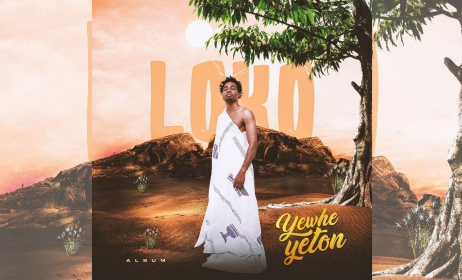


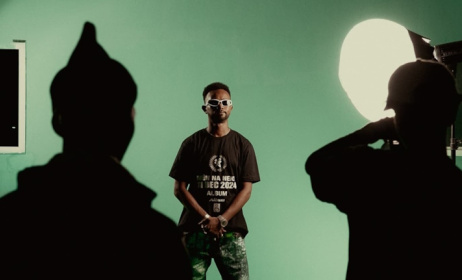





Commentaires
s'identifier or register to post comments